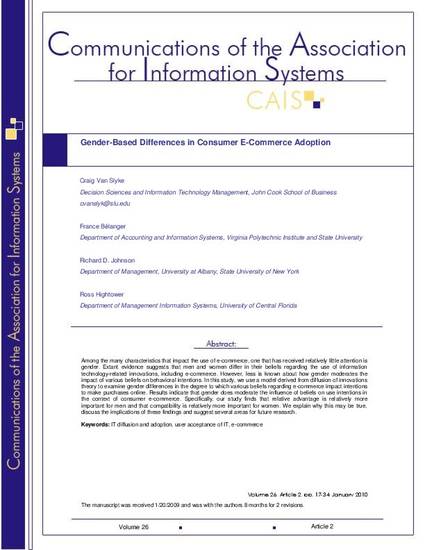
Among the many characteristics that impact the use of e-commerce, one that has received relatively little attention is gender. Extant evidence suggests that men and women differ in their beliefs regarding the use of information technology-related innovations, including e-commerce. However, less is known about how gender moderates the impact of various beliefs on behavioral intentions. In this study, we use a model derived from diffusion of innovations theory to examine gender differences in the degree to which various beliefs regarding e-commerce impact intentions to make purchases online. Results indicate that gender does moderate the influence of beliefs on use intentions in the context of consumer e-commerce. Specifically, our study finds that relative advantage is relatively more important for men and that compatibility is relatively more important for women. We explain why this may be true, discuss the implications of these findings and suggest several areas for future research.
Available at: http://works.bepress.com/craig-vanslyke/35/
